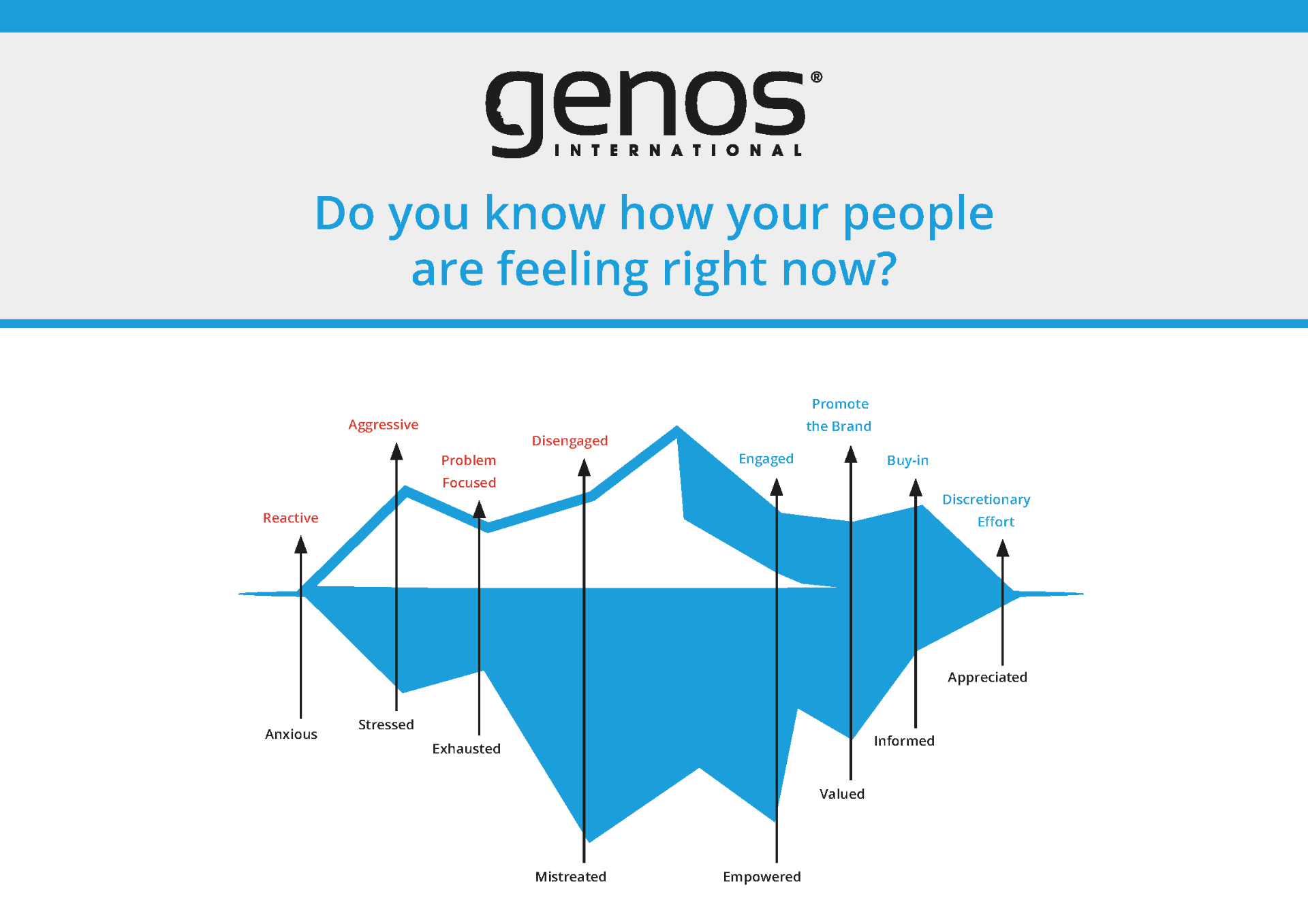GENOS Emotional Culture Index
For Teams and Organizations

Why do feelings matter?
We all experience a wide range of pleasant and unpleasant feelings at work as we interact with colleagues, customers, suppliers and others. These feelings influence our decisions, behaviour and performance and our health.
Pleasant feelings have a 'broaden and build' effect causing us to think more broadly, engage more deeply and perform better.
Unpleasant emotions tend to have a 'narrow and limiting' effect, causing us to be more closed-minded, less engaging and poorer at performing. Collectively, these emotions impact the bottom line for better or worse.
Research shows that people in high performing organisations experience more positive emotions and fewer negative emotions than those in low performing organisations (Boedker et al. 2011)
When you know how your people are feeling you can better plan where to focus your energy to optimise engagement, productivity, retention and resilience.

The Emotional Culture Index (ECI)
The Emotional Culture Index is designed to measure three dimensions of emotions at work:
Current state - How often your people experience certain feelings at work.
Expected state - How often your people think it's fair and reasonable to experience these feelings at work given the nature and context of your workplace.
Ideal state - How often your people think they should ideally experience these feelings in your workplace in order to be effective.
